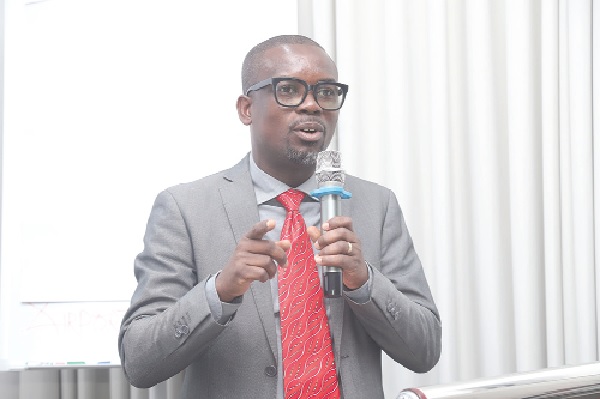EXPERTS in the nuclear energy sector converged on Accra to deliberate on strategies to strengthen the country’s nuclear security regime.
As part of the efforts, a five-day review meeting on an Integrated Nuclear Security Sustainability Plan (INSSP) was held in Accra on June 9 to review and update the country’s INSSP.
The acting Director-General of the Nuclear Regulatory Authority, Professor Francis Otoo, explained that the INSSP would help the country to assess and address security challenges, such as threats from cyber attacks.
He said the INSSP was developed in partnership with the International Atomic Energy Agency (IAEA) to provide a voluntary framework aimed at protecting nuclear materials, facilities and technologies from unauthorised access, misuse or theft.
“By ranking the highest security standards, Ghana can ensure the safe and secure use of nuclear technology for energy production and other applications,” he said.
He said robust nuclear security measures were crucial in an era of rising geopolitical tensions and rapidly evolving cyber threats.
Meeting
He emphasised that the meeting would contribute to the country’s efforts to establish a robust and sustainable nuclear security framework, aligning with international best practices and standards.
The meeting was organised by the National Regulatory Authority (NRA) and it brought together representatives from regulatory bodies, industry experts from Nigeria, Egypt, USA and the IAEA, academia, members of the Ghana Nuclear Security Committee, and security agencies.
Nuclear security
Prof. Otoo explained that the INSSP was also to help countries to sustain a comprehensive national nuclear security regime.
“Over the next five days… we will review and update Ghana's nuclear security country profile.”
“We will also review and complement Ghana's inputs to the Nuclear Security Information Management System (NUSIMS), and to establish an accurate and reliable Country Profile,” he said.
He said they would also develop an INSSP implementation plan for 2025-2028 based on identified areas for improvement and importance.
The Director for Science Technology and Innovation at the Ministry of Environment, Science and Technology (MEST), Kwamena Essilfie Quaison, reiterated the risks related to nuclear terrorism and cyber-attacks on critical infrastructure and called for urgent and coordinated attention.
“This is what the INSSP stands for: the development and implementation of a nuclear security framework to combat nuclear risk,” he said.
The INSSP Officer for Ghana, IAEA Nuclear Security Division, Zephirin Athanase Ouedraogo, also stressed that the NSSP enabled countries to use a systematic approach to identify and prioritise national nuclear security needs.
“The NSSP is a completely voluntary tool. Each INSSP is tailored to state-specific needs using guidance provided in the nuclear security series publication as its basis.”
“This will identify the concrete actions that Ghana plans to take to enhance nuclear security, some of which will be done by your country, and others being done in cooperation with international partners, such as the IEA and US or UK,” he said.
He encouraged the country to remain steadfast in its efforts to build a nuclear security regime and to continue working with the IAEA to enhance nuclear security globally.
He also expressed their readiness to work with the country to review and implement its INSSP.
